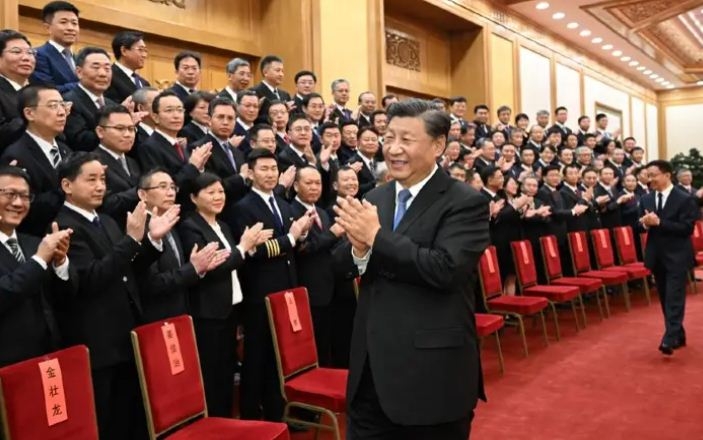Rising healthcare costs and corruption hit China’s millions of elderly people hard. Three years of the zero-Covid policy, wobbly economic conditions, a fast ageing population with shrinking workforce and sluggish growth in individual income are considered as factors behind the decline of medical insurance funds
While China makes all efforts to keep its people healthy as the economic slump worsens, it is the country’s fast ageing population and rising healthcare costs that are proving a big headache for common middle-class households as their savings are not able to cope with mounting medical bills.
Even as this has led to questioning the sustainability of China’s medical insurance fund, what is agonising to people is the prevalence of corruption in hospitals and pharmaceutical firms and its insidious impact on funds meant for the medical care of an individual person.
This has been a cause of huge concern for China’s 209.78 million people aged above 65 as whatever pensions they receive per month from the government, get drained off because of costly medical treatment. On average, an elderly person in China presently gets a monthly pension of 2,000 yuan ($275), said the South China Morning Post.
In 2022, on average, healthcare in China accounted for 8.6% of a person’s spending, up from 6.5% in 2016, according to data from the National Bureau of Statistics (NBS). During the same period, the proportion of senior citizens aged 65 and above climbed from 10.8% to 14.9%, the NBS said.

In China, under the healthcare scheme, the elderly can get reimbursement for up to 70% or at most 800 yuan a year. This is a major decline from an earlier reimbursement scheme when a senior citizen would get a medical benefit allowance up to 260 yuan ($38) per month or 3,120 yuan a year, said Reuters.
Three years of the zero-Covid policy, wobbly economic conditions, a fast ageing population with a shrinking workforce and sluggish growth in individual income are considered factors behind the decline of medical insurance funds. Around 97% of China’s total population is covered under the country’s health insurance fund. According to China’s National Health Commission, health facilities across the country have received more than 110 billion yuan from the medical insurance fund since 2020.
But healthcare costs are increasing and for this, the nexus between hospital management and pharmaceutical companies is cited as one of the key reasons as doctors in government-funded hospitals prescribe patients costly branded medicines and equipment. In lieu of such prescriptions, doctors, as per South China Morning Post, receive kickbacks from pharmaceutical companies and medical equipment suppliers.
Worse, corruption has not spared the country’s health insurance fund too. In 2022, five medical personnel, including a hospital chief in Hunan province’s Xiangtan area were sentenced to 11 years in jail for defrauding the fund of more than 12 million yuan ($1.67 million), the Hong Kong-based English daily newspaper said.
As per China Daily.com, about 180 hospital directors and administrators and several pharmaceutical executives are under investigation for corruption charges. In July this year, two senior pharmaceutical company executives—Winning Health Technology Group chairman Zhou Wei and Fan Zhihe, chairman of Shanghai Serum Bio-Technology were under investigation for alleged corruption, South China Morning Post said.
Linking the government’s anti-corruption drive with improved medical facilities, the Hong Kong-based English daily said the per-person costs for outpatient and inpatient services at Tanzhou People’s Hospital between January and May 2023 dropped by 16.6% and 21.4% respectively, after its director Luo Yong was removed from the post last year for allegedly taking bribes and receiving commissions from the purchase of medicine and medical equipment valued at around 30 million yuan.
In China, it is said, that medical practitioners are not well paid and this could be the cause of corruption among doctors. As per a White Paper published in 2018, the average starting salary for China’s junior doctors is around 4,850 yuan ($730) a month—significantly lower than what an average graduate receives in terms of salary in Shanghai and Beijing. The same was revealed by the China Statistical Yearbook 2021.
According to the Yearbook, the average annual salary in the Health and Social Work sector was 115,000 yuan (about ($ 15, 979). By the end of 2022, the country had approximately 4.4 million licensed physicians, the National Bureau of Statistics said.
Compared to their counterparts in the US, Chinese healthcare workers earn “relatively less,” China Daily.com said.
“It should be borne in mind by the authorities that the root cause of corruption does not lie solely in adequate income but also in the misalignment between supervision and professional ethical discipline,” the Beijing-based news outlet said in its editorial published on August 16.








